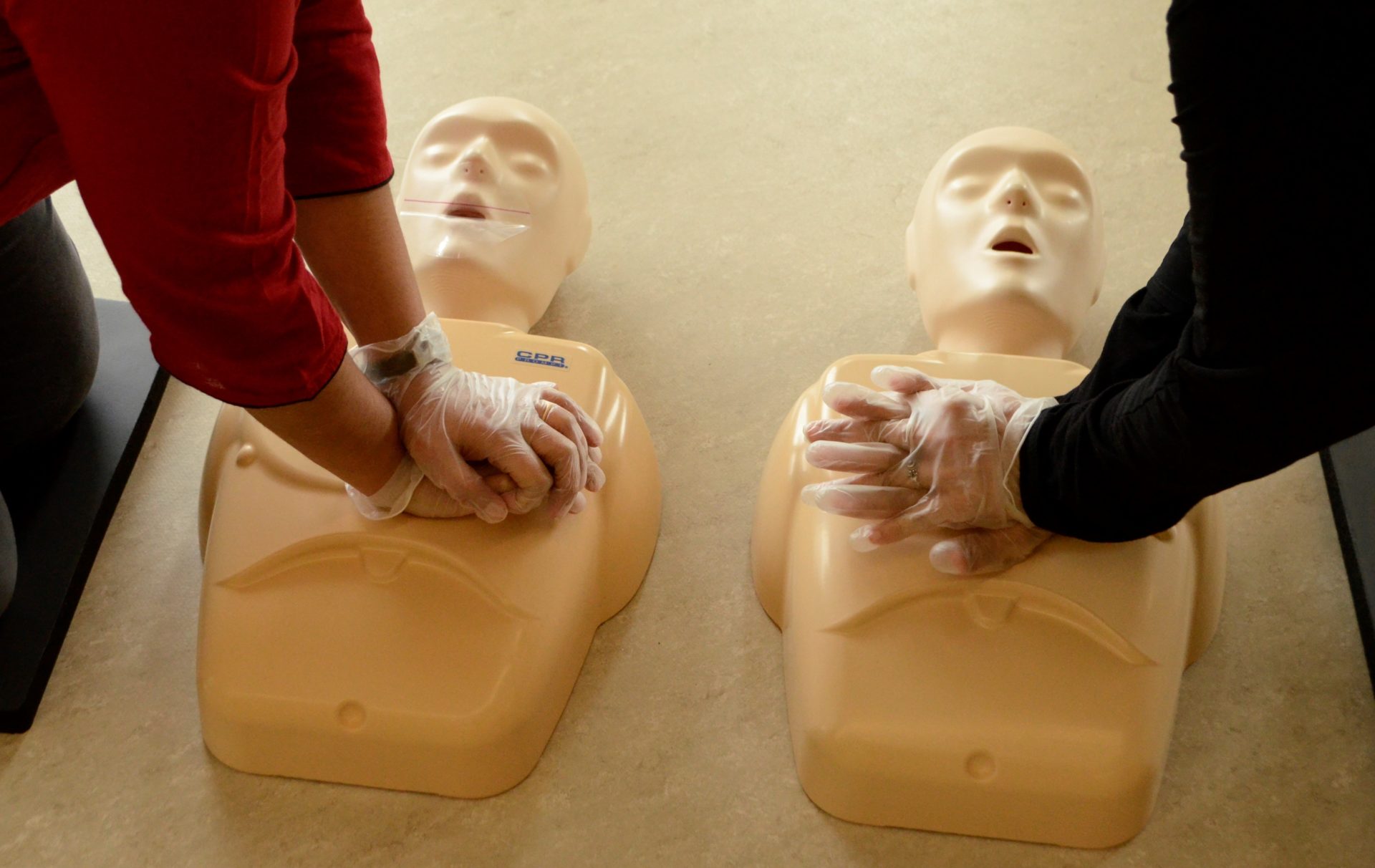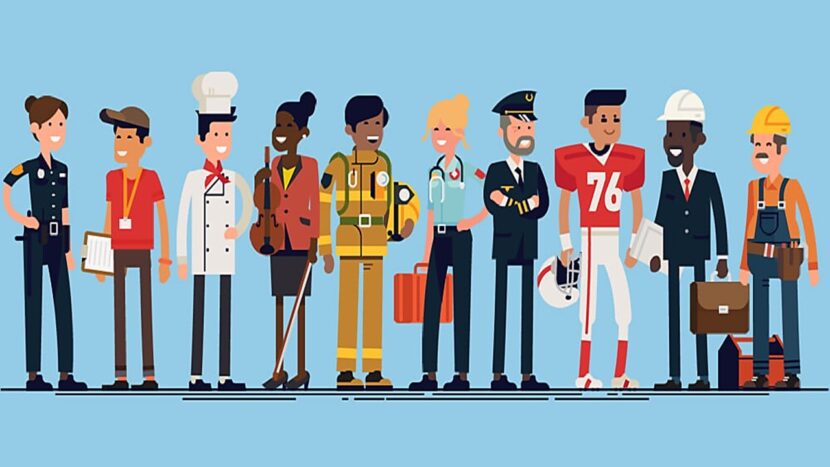Which Job Requires The First Aid & CPR Certification The Most
The ability to perform CPR is a skill that adds immeasurable value to all areas of one’s life, both personal and professional. It serves to boost your confidence in your ability to provide immediate care in an emergency, and it also boosts the confidence of those around you.
When you receive and maintain certification, it also increases your desirability as an employee in certain industries and for certain jobs. There are, in fact, certain jobs that require CPR certification either as a prerequisite or as a condition that must be fulfilled after one has been hired.
There are several important factors that people should take into consideration when entering a new career, including which jobs require CPR certification and where one can go to get the training needed in order to receive that certification.
At Alpha Life Trainers, we are the answer to the latter. We provide courses to students and busy professionals who want to expand their skills and opportunities by learning life-saving techniques. Our training programs are designed and taught by Canadian Red Cross certified instructors and are compliant with the guidelines established by Workplace Safety & Insurance Board (WSIB) and Ontario Health Safety (OHS).
In addition to certification, we also provide re-certification, and we are accepted across the nation by most industries that require employees to be CPR certified.
In recent years, more and more career fields are requiring employees to undergo certification training to prepare themselves to handle emergency situations. And for good reason. According to a recent study written on the survival rates of out-of-hospital cardiac arrests, 8 out of 10 cases happen outside of a hospital, specifically at home or work, and there are nearly 326,000 of these cases every year! It is necessary for employees in all types of industries to understand the life-saving skills of CPR because it most often lies within the hands of a bystander to save an unconscious victim.
Whether you are studying for a new career, looking to change job positions, or merely curious as to what your dream job requires regarding ongoing education and certification, here is a list of the career fields that require CPR certification, as well as the particular types of CPR they demand.
Medical Careers
Although it is the obvious answer, the medical field is one of the primary industries where you will find jobs that require CPR certification. Doctors, nurses, medical assistants, and paramedics are all in positions that require them to act when an emergency situation arises. While doctors and nurses provide full-on care, they also must be able to perform CPR and other techniques if needed in an emergency situation. The role of a medical assistant is often limited to specific tasks given by the doctor or nurse, but they may need to perform CPR in emergencies. When it comes to paramedics, CPR and other first aid techniques are necessary to perform their jobs on a daily basis. some of the other healthcare occupations that require CPR certification are:
- Nurse (RN)
- Licensed vocational nurse (LVN)
- Medical assistant
- Respiratory therapist
- Hospital technician
- Dentist
- Dental assistant
- Paramedic
- EMT
- Pharmacist and pharmacy technicians
- Physical therapist
- Occupational therapist
Law Enforcement
Police officers come into contact with the public in various, often volatile situations. During these situations, anyone from suspects to mere pedestrians may suddenly have a medical emergency and the law enforcement could be the first responders. Any one can have difficulty breathing, suffer a heart attack, or have a bleeding injury, for example. Law enforcement officers must be certified and capable of administering the necessary first aid care.
Child-Care Providers
Children are often high-energy and may not always see the danger in things that they do or even eat. This is why kids must always be closely supervised. Supervision, however, isn’t always enough. Kids in day-care or child-care centers can end up in emergency situations that arise from choking on objects, falling into pools, or touching things that can burn or cut them. Child-care providers must be prepared to administer CPR and/or first aid as needed, and for that reason, child-care workers have CPR certification.
Like stated above, infants and children can need CPR, especially with the increase risk in choking. Childcare providers are essentially responsible for a childs life during the time they are working. Adult CPR differs from infant and child CPR, so having the proper certification is critical.
Volunteers
From volunteering abroad to simply volunteering at a local food bank, volunteering often involves physical activities that can be strenuous on the human body such as heavy lifting, poor weather conditions or long hours without sitting. Volunteers are often asked to complete up-to-date CPR certification by coordinators because of the higher-risk environment.
Construction Worker
Construction workers do it all pour cement, haul heavy materials and operate complex machinery. These physically demanding conditions create a high-risk workplace, so CPR certification is a necessity.
Lifeguards
Another one of the somewhat obvious jobs that require CPR certification is a lifeguard. One of the duties of a lifeguard is to watch for and help prevent drowning at pools and beaches. If someone begins to drown, a lifeguard’s duty is to pull them from the water and perform CPR if necessary. Their job also requires them to perform CPR and first aid as needed for beach- or pool-goers who may be suffering from cardiac arrest or any other type of medical emergency.
Lifeguards should be equipped to know how to perform CPR, understand first aid basics and be able to use an AED as emergencies can occur both in and out of the water. There are specific rules for infant and children CPR, which should be differentiated from the more commonly learned adult CPR. From the possibility of drowning to falling, all lifeguards must be certified.
Firefighters
Firemen are required to save humanity from disaster situations and promote public health and safety. Firefighters could need to use CPR several times a month or week within their demanding practice. If you are considering a career as a firefighter, consider tackling CPR certification beforehand to demonstrate preparedness and caution to your potential employers.
When considering a job as a firefighter, you will want to take CPR or BLS classes to obtain your certification. Firefighters are generally first-responders in many emergency situations, ranging from fires to car accidents. They must be CPR-certified to respond to medical emergencies that arise as a result of the trauma associated with these situations. Often, firefighters and their ability to administer life-saving aid can be the difference between life and death.
Personal Trainers, Coaches, Athletic trainers and Physical Therapists
Cardiac arrest doesnt discriminate age. Anyone, even children and young adults, can experience it and require CPR. Coaches and athletic trainers often push their students cardiac abilities, endurance and stamina.
Personal trainers and physical therapists are required to be CPR-certified in most provinces. This is important in the event that a gym member suffers from a medical emergency that requires CPR. In some cases, the therapist or trainer may not be required to respond to an emergency while at work; however, they will have the certification and the skill if they must. The requirement for certification is often associated with obtaining their license.
Electrician
A career as an electrician is considered high-risk for safety, as they are exposed to the potential electric shock, high temperatures, toxic chemicals, fires, explosions and so much more everyday. With these hazardous conditions, the ability to act in an emergency situation is a must.
Flight Attendant
Flight attendants are the only readily available staff on a flight, and are often responsible for taking proper action in the case of an emergency. Weve all seen the horror scenes in the movies when an emergency occurs on flight, and no passengers have medical knowledge. Flight attendants have to be equipped to use CPR and an AED during flight and while in the airport.
Jail and Prison Personnel
Correctional officers and other jail and prison personnel are responsible for supervising the activities of inmates, enforcing rules, aiding in rehabilitation, etc. They often experience unsanitary conditions, contraband, weapons, violence and are constantly around people of all ages and demographics. Understanding what to do in the case of a cardiac emergency is crucial in this line of work.
Nanny and Babysitters
Dedicated nannies and babysitters understand the responsibility to always put the safety of the child or children being watched first. Children are especially susceptible for CPR and first aid intervention as they are more exploratory and unaware of what is safe and unsafe. Most parents and employers looking to hire a babysitter or nanny wont consider any applicants not certified in CPR.
Server
Not only are servers constantly around people, but also they are around people in a busy environment where choking, falling, and cardiac emergencies can happen. CPR and first aid knowledge is critical while working in the food and beverage industry.
Manager
Managers, whether retail, restaurant or small business, are responsible for employee actions, but are also typically liable for the health and wellness of the staff. Individuals are disposed to a variety of conditions that may be unsafe at work. Therefore, managers should know the proper action to save a life.
Teacher and School Staff
Like mentioned above, children are prone to injury, illness and choking more so than adults so CPR and first aid knowledge is often a requirement among employers looking to hire staff at schools.
Secretary
Secretaries may be the first and only person to see someone. They typically oversee the lobby or common areas of buildings where there may not be many people nearby.
Counselor
Counselors see individuals who may be experiencing difficult times when mental and physical health is diminished. Counselors typically work with one individual, couple or family during long hours. Because of these conditions, knowing how to act in an emergency is crucial.
Security Guard
Security guards have a wide variety of duties, which include patrolling property, monitoring surveillance, controlling traffic, etc. Essentially, security guards are responsible for maintaining a safe environment for all individuals and employees in the surrounding areas.
Parent
While parenting isnt necessarily a career, the workload and responsibilities of parenting are some of the greatest out there. Like nannies and babysitters, parents should prioritize their childrens safety first and foremost, and should consider becoming CPR, AED and first aid certified as emergencies, injury and illness are inevitable.
Yoga Teacher
The efforts exuded during yoga may test a persons physical and mental limitations. The high intensity stretches and high temperatures put yogis at a high risk for emergency.
Social Worker
Like counselors, social workers work with individuals and families intimately and should always be prepared for both minor and major emergencies.
Student
Being CPR certified as a student will not only boost your resume, but will also prepare you to act in an emergency during classes, seminars and within close living quarters, like dorm rooms.


